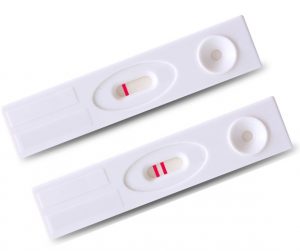Welcome to the BeeMonitor project website.

Welcome to the BeeMonitor project website.

Project Objectives:
In the past years massive deaths of honeybees have taken place all over Europe and other continents, especially since 2004 due to the ‚Depopulation Syndrome’ or ‚Colony collapse disorder’ (CCD) phenomenon. The problem is attributed to viral infections. It is estimated that hives infected with viruses have a 96% chance of suffering from CCD. Once infected, chances of the colony collapsing rise 65 times. Moreover, factors which weaken the immune system of bees, such as Varroa destructor mites, other parasites and also environmental change-related stresses, malnutrition and pesticides, additionally encourage the development of viral infections and boost the CCD scope. While viral infections of bees had originally been described as ‚economically irrelevant’, they currently are considered as the main cause of high colony losses causing huge financial losses for agriculture.
Since honeybees are extremely important to the European agriculture being worth billions of Euros as honey producers and important crop pollinators, there is a huge and urgent global market demand for a diagnostic test which would enable monitoring viral infections in bee colonies.

The BeeMonitor project will provide rapid diagnostic test for bees for effective monitoring of viral infections in bee colonies. The test will enable qualitative analysis of viruses, causing the highest losses in bee colonies, belonging to the Dicistroviridae family – Acute Bee Paralysis Virus (ABPV), Kashmir Bee Virus (KBV) and Israeli Acute Paralysis Virus (IAPV) and to the Iflaviridae family – Deformed Wing Virus (DWV)). The product will be user-friendly, cost-effective and easy to use in the field – no special skills or equipment are required. These properties, together with a large number of distribution channels will make Rapid Multi-Test alternative to the molecular tests conducted in the laboratories. Early and adequate diagnosis enables rapid intervention, lowers the cost of treatment, reduces the spread of infection and significantly increases the chances for colony’s recovery. Good agricultural practices indicate that replacement of preventive usage of so called bee protectors by bee health monitoring (together with the intervention in case of infection) brings significant financial benefits.
Partners
News

Experimental work related to the development of field tests for the detection of Acute Bee Paralysis Virus and Kashmir Bee Virus has been completed
 The Seventh EurBee Congress of Apidology
The Seventh EurBee Congress of Apidology
We will attend the seventh EurBee Congress that will be held in Cluj-Napoca, Romania, from 7th to 9th September 2016. We invite you for talks those interested in rapid diagnostic tests for honey bee viruses detection.
Interview for biotechnologia.pl
” Fast diagnostics of bees pathogens infections would allow for immediate intervention and could prevent their spreading. Dr. Miroslaw Skupińska, co-owner of Bioscientia, is engaged in the development of a rapid diagnostic tests to help beekeepers in the diagnostics of Nosema ceranae and viral diseases in bee families …”
A new website containing information related to the BeeMonitor project, and „Colony Collapse Disorder” (CCD) has been created. The website integrates previous publications on this subject, and contains a database of viral sequences
Contact
Project Coordinator:
Agnieszka Belter
BioScientia s.c.
ul. Ogrodowa 2/8
61-820 Poznań
Phone: + 48 506 418 098
Fax. + 48 61 842-65-74
E-mail: abelter@bioscientia.pl
Exploitation Manager:
Mirosława Skupińska
BioScientia s.c.
ul. Ogrodowa 2/8
61-820 Poznań
Phone: + 48 692 448 884
Fax. + 48 61 842-65-74
E-mail: mirka@bioscientia.pl